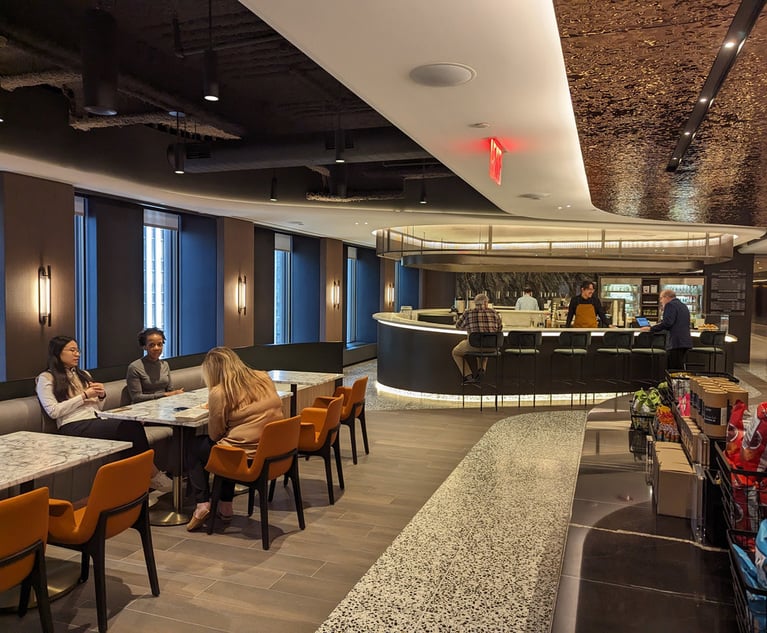For the past 12 to 18 months, office building owners have been energetically implementing new tactics to attract tenants back to their buildings as the pandemic becomes less impactful. One growing trend among owners is hiring outside vendors to provide added-value building amenities for tenants, such as conference room services, fitness centers with nutritionists, and unique food and beverage offerings. One of our landlord clients even enters each tenant traveling through the building lobby into a lottery for NFL tickets. These new amenity relationships, however, are complex and in some cases do raise certain legal issues.
In certain cases, these amenity operations may be structured as leases or license agreements, where the vendor bears all operating expenses and retains the revenue from the business–other than rent or fees payable to the building owner. However, in many cases, the structuring of these arrangements may find office tower landlords outside their comfort zone. Rather than using traditional lease documents to seal these deals, these arrangements are generally documented as management and consulting arrangements, akin to those used by hotels with their providers of spa and health services, restaurants and catering.
This content has been archived. It is available through our partners, LexisNexis® and Bloomberg Law.
To view this content, please continue to their sites.
Not a Lexis Subscriber?
Subscribe Now
Not a Bloomberg Law Subscriber?
Subscribe Now
LexisNexis® and Bloomberg Law are third party online distributors of the broad collection of current and archived versions of ALM's legal news publications. LexisNexis® and Bloomberg Law customers are able to access and use ALM's content, including content from the National Law Journal, The American Lawyer, Legaltech News, The New York Law Journal, and Corporate Counsel, as well as other sources of legal information.
For questions call 1-877-256-2472 or contact us at [email protected]


 Robin Zeidel of Zeidel & Associates. Courtesy photo
Robin Zeidel of Zeidel & Associates. Courtesy photo




